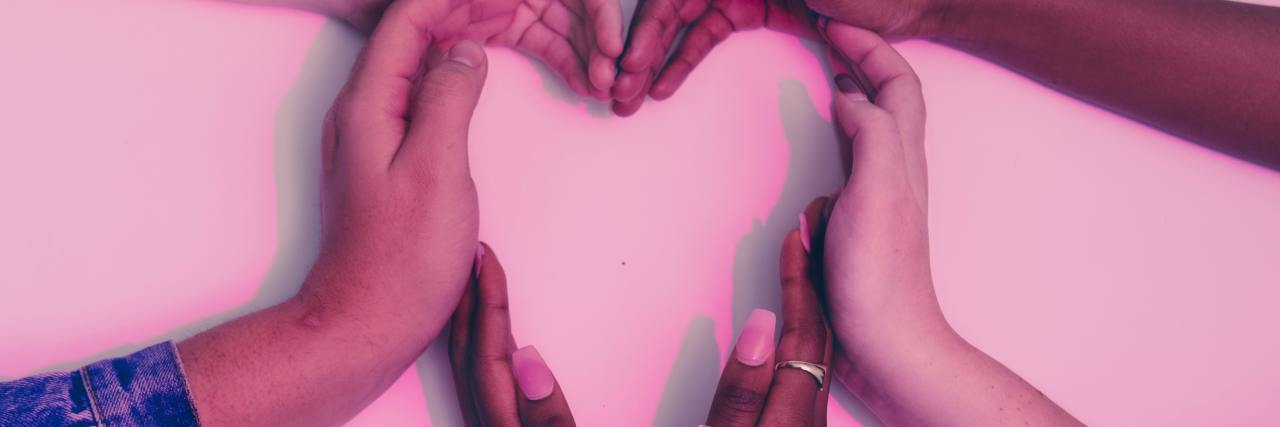Parenting a Child With a Disability During COVID-19 Got Me Thinking More About Social Capital
A few years ago I read this blog post titled “How and Why to Build Social Capital for your Disabled Child.” The idea of social capital has been bouncing around in my head since then, but more recently it has been front and center almost every day. If you are a parent of a child with a disability, or want to support people with disabilities, I implore you to read that blog post!
so·cial cap·i·tal
noun
- The networks of relationships among people who live and work in a particular society, enabling that society to function effectively.
So here is an example that most people can probably relate to: When we have friends or family that have new babies, we take extra precautions to protect that baby. When we visit we make sure we don’t have any symptoms of illness, we wash our hands before getting near the baby, and we do not touch the baby’s face. If we are sick, we realize that we could put that baby at risk so we delay seeing them.
Most people I know just innately follow these guidelines even with babies we don’t know, and when it comes down to it, we do it because throughout our society, and the relationships we have formed, we have come to care about the wellbeing of babies.
There are other examples that do not involve health.
Essentially, social capital can be seen through any beneficial interaction or action that takes place to help others function in our society.
I imagine you may be starting to understand why social capital is so important for people with disabilities.
How do you build social capital? One article put it this way:
“It comes from sharing and giving, and from belonging and socializing.
It’s about goodwill, trust, and developing a sense of belonging.”
Isn’t this a vision that all parents can relate to when we think of what we want for our children’s futures? We want them to have relationships and social circles where they feel a sense of belonging. Heck, I want this for myself, too!
Recently, a few friends and I started a book club, three of us each invited a friend to join. This book club is something I look forward to each month with eagerness. It is a bright spot for me. But it isn’t just the single night escaping from reality and discussing the book that is amazing … it is the relationships that have formed. I know this may seem silly, but when I see this group of women, some of whom have only just met, build one another up on social media or through texts, I feel so good that we started this book club. We are seeing social capital at work.
Ample research has been conducted on social capital, especially in relation to disability. One recent study in Italy investigated the impact of social capital on the COVID-19 response. They found that areas in Italy that had higher levels of social capital voluntarily responded more quickly to the virus and ultimately, had fewer cases. The authors suggest that voluntary social behavior plays an important role in containing the virus.
This is huge. This is why social capital is so important. This is where we as a society have to decide if we are “all about ourselves” or “care for the greater good” of our society, and each other. When I hear people say this virus just needs to “get through our population” I hear that you do not care about the life of my child with a disability.
A few months ago a friend told me that her daughter may have been exposed to COVID-19. This little girl had just had her second heart surgery last year. My stomach was in knots until she got the results of her test back. From that point on, I knew I needed to do better. If there is anything that I can do to protect this little girl and every single person out there like her I am going to do it.
I do not wear a mask, social distance, take vitamins, exercise, monitor symptoms just for my benefit. In fact, the mask wearing is probably mostly for the benefit of others. Is it annoying at times? Yes, but that is nothing compared to thinking that I could spread a deadly virus to someone who has a compromised immune system. Or someone that is the sole caretaker for their family and loses work due to the illness. Or someone who doesn’t have health insurance so they are unable to get the care they need.
This is social capital. This is empathy. This is caring about others.
I dream of building social capital for my daughter and those like her so that long after I am gone, people without disabilities will consider partaking in “slightly annoying activities” without making her feel less than or like she doesn’t matter so that she can continue to live her life to her fullest potential.
Photo submitted by contributor.

